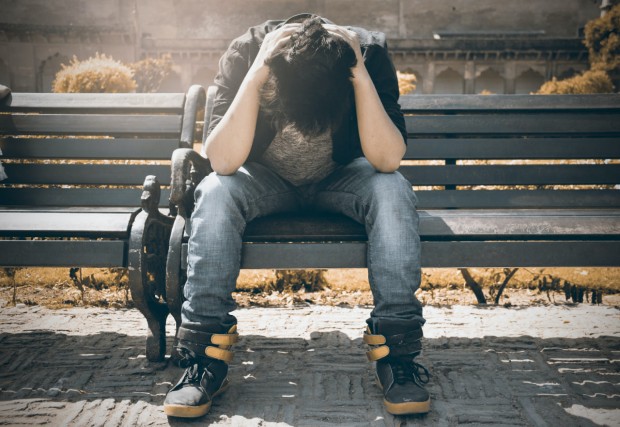Mental Health
Can Concussions Cause Depression?

Concussions can cause depression. This is a statement that, especially 20 years or so ago, was highly unconventional. Nowadays, however, it is widely recognized in traumatic brain injury research.
Concussions are officially classified as 'mild' traumatic brain injuries (mTBI), and until recently, the most given medical advice has been just as mild: wait and see. Over the last 10 years, large-scale and international studies have uncovered that concussions are not that mild, that a wait-and-see approach is not good and that in fact, concussions are often related to mental health problems. Let us look at how this works.
Biological causes of depression after concussion

Right after sustaining a concussion, several biological processes are set in motion by the body to ensure a speedy recovery of the injury. However, if these processes linger because the concussion symptoms are persistent, they may cause depressive symptomatology.
Low BDNF
The protein BDNF (brain-derived neurotrophic factor) is important for healing the injured brain. However, it is decreased in patients who sustained a concussion, and low BDNF also related to patients with depression.
Inflammation
Even though brain injury researchers have not fully agreed on it yet, evidence points in the following direction: it seems that an injured brain is an inflamed brain. If any other part of our body gets injured, it gets inflamed as well: this helps the healing process. However, inflammation is related to depression (especially neuroinflammation).
Disturbed sleep
After sustaining a concussion, many patients report sleeping problems. Whether this comes from hormonal disturbances, traumatic experiences, lack of physical exertion, or other reasons: (long-term) lack of sleep is related to depression.
Depression because of a lingering concussion

There is a correlation between depressive symptoms and lingering concussions. About half of all people with a concussion who have visited the ER, have not recovered within 6 months after sustaining their brain injuries. And it is exactly this group (which is much bigger than was previously believed) who are at risk of depressive symptoms.
Why persisting mTBI may cause depression
Why are patients with persisting mTBI symptoms at risk for depressive symptoms, too? A concussion that doesn't resolve quickly causes a wide range of side-effects for someone, like social isolation, financial problems, the inability to follow dreams, and so on. These effects, in turn, may awaken a sense of powerlessness and loss of identity - which can very understandably lead to depression.
Post-concussion syndrome depression

Post-concussion syndrome depression is real, and it is serious. The good news is that there are tons of things that you can do at this moment to turn things around. The most important thing is to decide that you are going to get back up.
Depression may lead to suicidal ideation
Do not let depression fester and grow: it disturbs your perspective and, in the worst case, may lead to suicidal ideation. This happens because it may feel like you have no way out, and your brain thinks: but there is a way out. If you recognize this train of thought, do your best to not believe it.
If you don't trust yourself with your thoughts, call the suicide helpline in your country. This service is anonymous and you will speak with a trained professional who can help you (for free).
Treat depression, treat the concussion
It is so important to treat depression and reclaim your recovery, reclaim your life. The sooner you recover from depression, the more energy you have left to spend on healing your concussion. Remember that the odds are on your side when it comes to recovering from (lingering) concussion: there truly is hope. Do not give up, but fight to find your way. You find an extensive guide that can help you move forward from here under the last link above.
* This is a contributed article and this content does not necessarily represent the views of counselheal.com









Join the Conversation